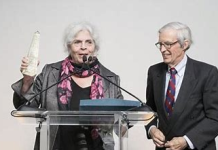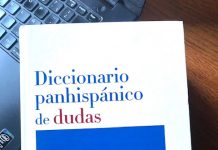 Last year; the United Nations, Education, Scientifics and Cultural Organization (UNESCO) honored Mr. Ludwik Zamenhof; for trying to create a universal language; The Esperanto.
Last year; the United Nations, Education, Scientifics and Cultural Organization (UNESCO) honored Mr. Ludwik Zamenhof; for trying to create a universal language; The Esperanto.
100th anniversary of the death of Ludwik Zamenhof, physician and linguist (1859-1917) (with the support of Germany and Slovakia) (2017)
“Born inside the multinational community of the city of Białystok, L. Zamenhof (1859-1917) created the first version of his Lingwe Uniwersala already at a young age. In 1885 Zamenhof decisively finished his project of the international language as we know it today. In 1887 he published a textbook in Russian: “The international tongue – Preface and complete method”, under the pseudonym Doktoro Esperanto. The pseudonym means “The Doctor who hopes” and has caught on as the name of the language. In the same year the textbook was published in Polish, French, German and English.
If you are interested in information like this, you may read our Edition 34.

The first Esperanto clubs started to come into being, and the advantages of the language were recognized by linguists too. In 1905 in Boulogne-sur-Mer, France, the first World Congress of Esperanto took place. While staying in France, Zamenhof was decorated with the National Order of the Legion of Honour. In 1906 Zamenhof published humanitism (homaranismo), which is the idea of the union of all the nations communicating in a common language.
The Esperanto movement he initiated has spread all over the world, while the creator released all his rights, liberating Esperanto for every human’s use. The work of L. Zamenhof is known worldwide reaching over 120 countries. The idea of a common language has fascinated many people and lots of them made similar attempts at creating one, but Zamenhof’s case is the only one to have achieved world success”
Source: UNESCO



















